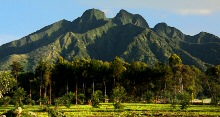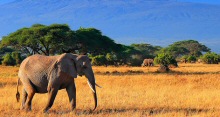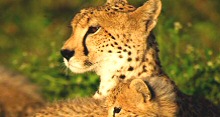The Africa wildlife conservationists really disapprove of the rate at which the poaching in the Kenyan parks is accelerating in the last few months. Because of this fact, these conservationists through their African Network for Animal Welfare believe that unless poaching is stopped, the Kenya’s wildlife will soon all the be extinct which means a destruction of the largest source of foreign currency therefore destroying the wildlife will be so bad for the economy.
According to the recent reports, poaching rate is just too high worrying the conservationists that if the rate stays that high, then in a few moths the country will have no we are afraid that if this continues we will no longer have what local and international go to enjoy seeing in the parks across the country so said Selisha Chandra who is the Anaw chief executive officer in Nakuru on Thursday during an anti-poaching walk.
According to Chandra, the Kenya Wildlife Service statistics indicate384 elephants and 19 rhinos were killed in 2012 and in that6 very year; there were 200 zebras that were killed for bush meat in the Loita reserve. In just the Maasai Mara game reserve, over 149 elephants were killed and in Samburu game reserve 154 elephants were poached. For this reason, the conservancy agency has asked the government to declare poaching a national disaster in an effort to save the animals that are in danger of being killed by poachers.
She also demanded for the implementation of the Wildlife Act, 2011 that has stringent rules and regulations concerning the protection of wildlife and this will be very helpful in protecting the stray wildlife from being killed by the communities that are living around the parks. This is why, it is very important to involve the local communities in the in safeguarding their lives as well as the animals so she said and encouraged KWS to welcome the locals. The surrounding community will be useful in informing the KWS of poachers so that they can take a prompt security measure to nab them before they attack or kill the animals.
John Wambua who is the Lake Nakuru National Park senior warden also agrees with the fact that the community involvement around the park helps in the reduction of poaching activities, he says it has worked for them.












